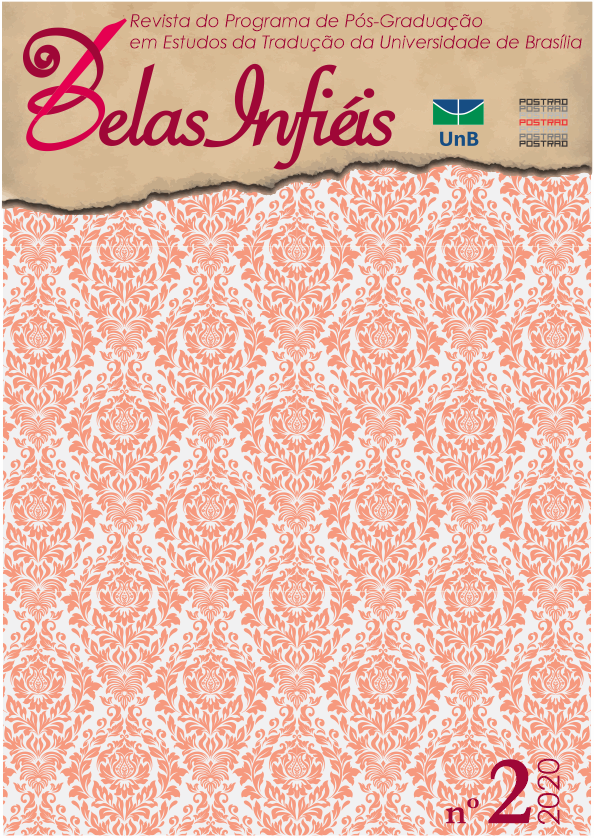Philodemus of Gadara: Selected Epigrams
DOI:
https://doi.org/10.26512/belasinfieis.v9.n2.2020.27203Keywords:
Philodemus of Gadara. Greek lyric poetry. Love poetry. Epigram. Epicureanism.Abstract
The poetry of the Epicurean philosopher Philodemus of Gadara (c. 110 ”“ c. 40 BC) is situated in the Hellenistic epigramatic poetry, with the transformation of the classic epigram and its fusion with the elegy by predecessors such as Asclepiades of Samos (c. 320 BC), Callimachus (310/305 ”“ 240 BC) and Meleager (1st century BC). Written in Greek, his epigrams were praised by Cicero (106 ”“ 43 BC) and collected in the “Anthology” of Philip of Thessalonica, in the 1st century AD, which ended up being included in the Anthologia Palatina, in the 10th century, ensuring its transmission until our era. In the following selection, seven brief epigrams of the author were translated into free verses, in which the ineffability of the love experience, known only in subjectivity, and the various female roles courted by the poetic voice stand out.
Downloads
References
MAIURI, Amadeo. Herculaneum and the Villa of the Papyri. Novara: Istituto Geografico de Agostini, 1974.
SIDER, David. The Epigrams of Philodemus. Introduction, Text, and Commentary. Oxford: Oxford University Press, 1997.
Downloads
Published
How to Cite
Issue
Section
License
Given the public access to this journal, the texts are free to use but requires the recognition of the original authorship and initial publication in this journal to be properly stated.
 The journal allows the use of works published for non-commercial purposes, including the right to submit the work to publicly accessible databases. Published contributions are the sole and exclusive responsibility of the author(s).Â



















